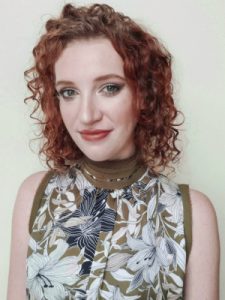The counsellor-client and loved-one-to-loved-one relationships are fundamentally different. Following are 6 differences between a counselor and a friend, and how both parties may support you in a different manner.
- Uninterrupted listening
When last were you able to talk to a friend or family member for an hour without interruption? A big difference between a counselor and a friend is that you are the ONLY focus in counselling sessions. The counsellor has trained in communication skills and provide undivided attention. You can talk, without guilt for taking up time or talking about yourself too much.
- A collaborator, not a teammate
A counselor is focused on you and collaborates with you to help you gain mastery over your struggles, with no other hidden or personal motives. Friends and family, on the other hand, are not necessarily collaborator, but may be more like your teammates. They generally want to see you happy and they will generally side with you in times of difficulty. By being your teammate, loved ones may not aid you in further exploring the situation, but rather show their support by ‘having your back’. On the other hand, a counselor may prompt deeper exploration of a subject in order to promote your understanding thereof to promote your understanding of yourself.
- Holding the space
You studied weeks in advance and tried your best, but you walk out of the exam venue knowing that you didn’t complete more than half of the test. Your friends ask you how the paper was, you answer, “Tanked it,” and laugh it off. While friends may laugh with to break the air of discomfort, a counselor approaches the situation differently by ‘holding the space.’ This means that the counselor will stay in that moment of ‘uncomfortability’ with you, without laughing to break the tension. A counselor holds the space for you, which allows you to say, “Hey. It’s okay to talk about this. I can go there with you. It’s not too uncomfortable for me to listen to.”
- No assumptions zone
The people you share your life with already know you. They have a certain image of you and perhaps expectations of you and for you. With good intentions, loved ones believe they know what would be best for you. On the other hand, a counselor is objective. Counselors strive to be unbiased, completely judgement free and to make no assumptions about you or what is best for you. A counselor aims for you to be YOU. You are the master of your own fate and a counselor guides you to make your own choices and take responsibility for them.
- No ‘fixing’
Counselors do not advise you on exactly what to you should do. Grandma, on the other hand, knows what will make you feel better. Feel ill? “Ouma” recommends some tablets, pours you a Med-Lemon, turns you to the West and her crystals emerge from her knitting bag. Loved ones ‘try to fix’ because we care for each other and want to see each other feel better. A counselor promotes your wellbeing by reminding you that you are not broken and do not need ‘fixing.’ The counselor helps you by supporting you in figuring out what to do, accessing your own wisdom and acknowledging that only you know what is best for you.
- Complete privacy
Counselors are legally and ethically bound to maintain confidentiality. In counselling, you can say everything you cannot or will not say in ‘real life.’ You are allowed to voice your fears and say the unspeakable, with a guarantee that no one will judge you for it or tell anyone else about it. No one is going to be upset, no relationships are going to be destroyed and there will be no repercussions at work. Counselors maintain confidentiality, unless you pose clear and imminent danger to yourself or others. Counselors may never share identifiable information about clients. The client’s safe space is a top priority in counselling.
The Author: Elsie Cloete
I completed my B achelor of Fine Art and Bachelor of Social Science Honours Degree in Psychology at the University of Pretoria and have since become a Trauma Incident Reduction facilitator and Cognitive Behavioural Therapy coach. I believe that personal growth is promoted by a multifaceted counselling approach that incorporates the body, values our emotions and explores our thoughts through multi-sensory techniques. I enjoy going beyond ‘talk therapy,’ which is why I utilise multidisciplinary therapeutic techniques to add additional value to my counselling sessions. I am based in Pretoria East for in-person sessions and am available for online sessions, via Zoom.
achelor of Fine Art and Bachelor of Social Science Honours Degree in Psychology at the University of Pretoria and have since become a Trauma Incident Reduction facilitator and Cognitive Behavioural Therapy coach. I believe that personal growth is promoted by a multifaceted counselling approach that incorporates the body, values our emotions and explores our thoughts through multi-sensory techniques. I enjoy going beyond ‘talk therapy,’ which is why I utilise multidisciplinary therapeutic techniques to add additional value to my counselling sessions. I am based in Pretoria East for in-person sessions and am available for online sessions, via Zoom.
When I’m not counselling, you can find me playing with paints, ink, drawing and experimenting in the garden. I have previously worked as a trauma facilitator, a behavioural analyst for children on the Autism Spectrum, as a preschool teacher, a professional fine artist and even as a referee at a trampoline park. I went where life took me, and I found my passion for helping you heal.
Grow through what you go through.


